
Kód: 02095556
Ethnonationalist Conflict in Postcommunist States
Autor Maria Koinova
Ethnonationalist Conflict in Postcommunist States investigates why some Eastern European states transitioned to new forms of governance with minimal violence while others broke into civil war. In Bulgaria, the Turkish minority was ... celý popis
- Jazyk:
 Angličtina
Angličtina - Väzba: Pevná
- Počet strán: 328
Nakladateľ: University of Pennsylvania Press, 2013
- Viac informácií o knihe

99.65 €
Bežne: 110.75 €
Ušetríte 11.09 €

Skladom u dodávateľa v malom množstve
Odosielame za 14 - 18 dní
Potrebujete viac kusov?Ak máte záujem o viac kusov, preverte, prosím, najprv dostupnosť titulu na našej zákazníckej podpore.
Pridať medzi želanie
Mohlo by sa vám tiež páčiť
-

Convective Heat and Mass Transfer in Rotating Disk Systems
214.68 € -

Naturalist in La Plata
34.92 € -

My New Curate
41.47 € -

Guide to Stoicism
41.47 € -

Security Politics in the Asia-Pacific
51.92 € -

Quantitative Borehole Acoustic Methods
197.88 € -

Unterrichtsstunde
45.98 €
Darujte túto knihu ešte dnes
- Objednajte knihu a vyberte Zaslať ako darček.
- Obratom obdržíte darovací poukaz na knihu, ktorý môžete ihneď odovzdať obdarovanému.
- Knihu zašleme na adresu obdarovaného, o nič sa nestaráte.
Viac informácií o knihe Ethnonationalist Conflict in Postcommunist States
Nákupom získate 246 bodov
 Anotácia knihy
Anotácia knihy
Ethnonationalist Conflict in Postcommunist States investigates why some Eastern European states transitioned to new forms of governance with minimal violence while others broke into civil war. In Bulgaria, the Turkish minority was subjected to coerced assimilation and forced expulsion, but the nation ultimately negotiated peace through institutional channels. In Macedonia, periodic outbreaks of insurgent violence escalated to armed conflict. Kosovo's internal warfare culminated in NATO's controversial bombing campaign. In the twenty-first century, these conflicts were subdued, but violence continued to flare occasionally and impede durable conflict resolution. In this comparative study, Maria Koinova applies historical institutionalism to conflict analysis, tracing ethnonationalist violence in postcommunist states to a volatile, formative period between 1987 and 1992. In this era of instability, the incidents that brought majorities and minorities into dispute had a profound impact and a cumulative effect, as did the interventions of international agents and kin states. Whether the conflicts initially evolved in peaceful or violent ways, the dynamics of their disputes became self-perpetuating and informally institutionalized. Thus, external policies or interventions could affect only minimal change, and the impact of international agents subsided over time. Regardless of the constitutions, laws, and injunctions, majorities, minorities, international agents, and kin states continue to act in accord with the logic of informally institutionalized conflict dynamics. Koinova analyzes the development of those dynamics in Bulgaria, Macedonia, and Kosovo, drawing on theories of democratization, international intervention, and path-dependence as well as interviews and extensive fieldwork. The result is a compelling account of the underlying causal mechanisms of conflict perpetuation and change that will shed light on broader patterns of ethnic violence.
 Parametre knihy
Parametre knihy
Zaradenie knihy Knihy po anglicky Society & social sciences Politics & government Political control & freedoms
99.65 €
- Celý názov: Ethnonationalist Conflict in Postcommunist States
- Autor: Maria Koinova
- Jazyk:
 Angličtina
Angličtina - Väzba: Pevná
- Počet strán: 328
- EAN: 9780812245226
- ISBN: 0812245229
- ID: 02095556
- Nakladateľ: University of Pennsylvania Press
- Hmotnosť: 703 g
- Rozmery: 229 × 152 × 33 mm
- Dátum vydania: 04. July 2013
Obľúbené z iného súdka
-

Propaganda
15.56 € -4 % -

So You Want to Talk About Race
15.76 € -23 % -

Manufacturing Consent
14.43 € -23 % -

In Order To Live
11.36 € -24 % -

Long Walk To Freedom
15.25 € -23 % -
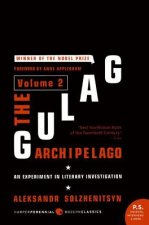
The Gulag Archipelago, 1918-1956
18.84 € -22 % -
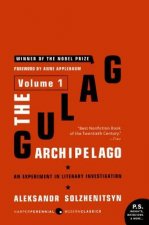
The Gulag Archipelago, 1918-1956
18.84 € -22 % -
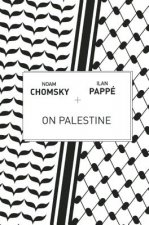
On Palestine
14.84 € -19 % -
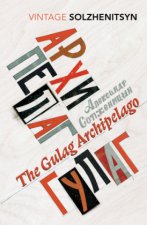
The Gulag Archipelago
16.58 € -23 % -

Anatomy of the State
13.20 € -19 % -

Understanding Power
18.73 € -23 % -

Parkland: Birth of a Movement
21.19 € -13 % -

Suffragettes
3.57 € -24 % -

Media Control - Post-9/11 Edition
13.82 € -

Beyond Chutzpah
45.47 € -

Palestine in Israeli School Books
42.70 € -

Citizenship
16.38 € -6 % -

Stromaufwärts zur Quelle
20.48 € -

Christianity and Human Rights
49.05 € -

Nothing To Envy
9.41 € -24 % -

New Jim Crow
12.28 € -23 % -

Inventing Human Rights
15.35 € -16 % -

Gift of Love
11.15 € -23 % -

Commissar Vanishes
29.08 € -

Gulag Archipelago
18.73 € -23 % -

On Liberty
11.15 € -23 % -
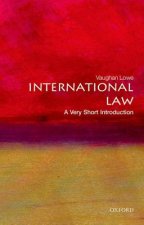
International Law: A Very Short Introduction
9.41 € -24 % -

Human Rights: A Very Short Introduction
9.41 € -24 % -

Political Philosophy: A Very Short Introduction
9.41 € -24 % -

Red Horizons
20.17 € -6 % -

Cultural Cold War
20.48 € -19 % -

The Net Delusion
12.28 € -23 % -

How Propaganda Works
21.91 € -

Creating Capabilities
21.81 € -6 % -

Half the Sky
13.72 € -19 % -

Summary of Propaganda by Edward Bernays
6.44 € -13 % -

Rights of Man
7.98 € -22 % -

Anatomy of the State
8.49 € -

Constructing Cassandra
41.88 € -

I Have a Dream
15.56 € -15 % -

Universal Human Rights in Theory and Practice
37.99 € -
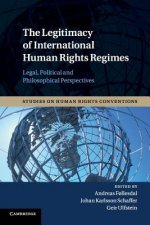
Legitimacy of International Human Rights Regimes
53.05 € -
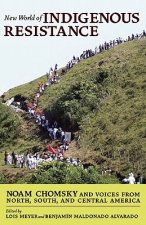
New World of Indigenous Resistance
19.14 € -5 % -

Fear No Evil
17.20 € -19 % -
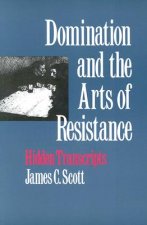
Domination and the Arts of Resistance
24.47 € -

Handbook of Tyranny
35.33 € -

Desert and the Sea
13.20 € -17 % -

In Harm's Way
73.23 € -

Witness for the Defense
23.34 € -3 %
Osobný odber Bratislava a 2642 dalších
Copyright ©2008-24 najlacnejsie-knihy.sk Všetky práva vyhradenéSúkromieCookies


 21 miliónov titulov
21 miliónov titulov Vrátenie do mesiaca
Vrátenie do mesiaca 02/210 210 99 (8-15.30h)
02/210 210 99 (8-15.30h)